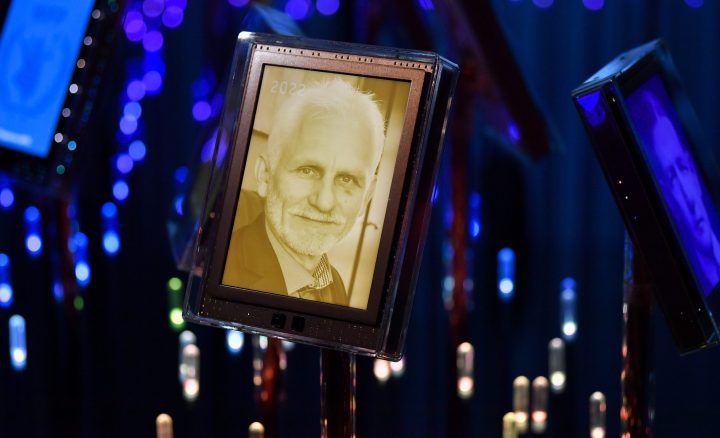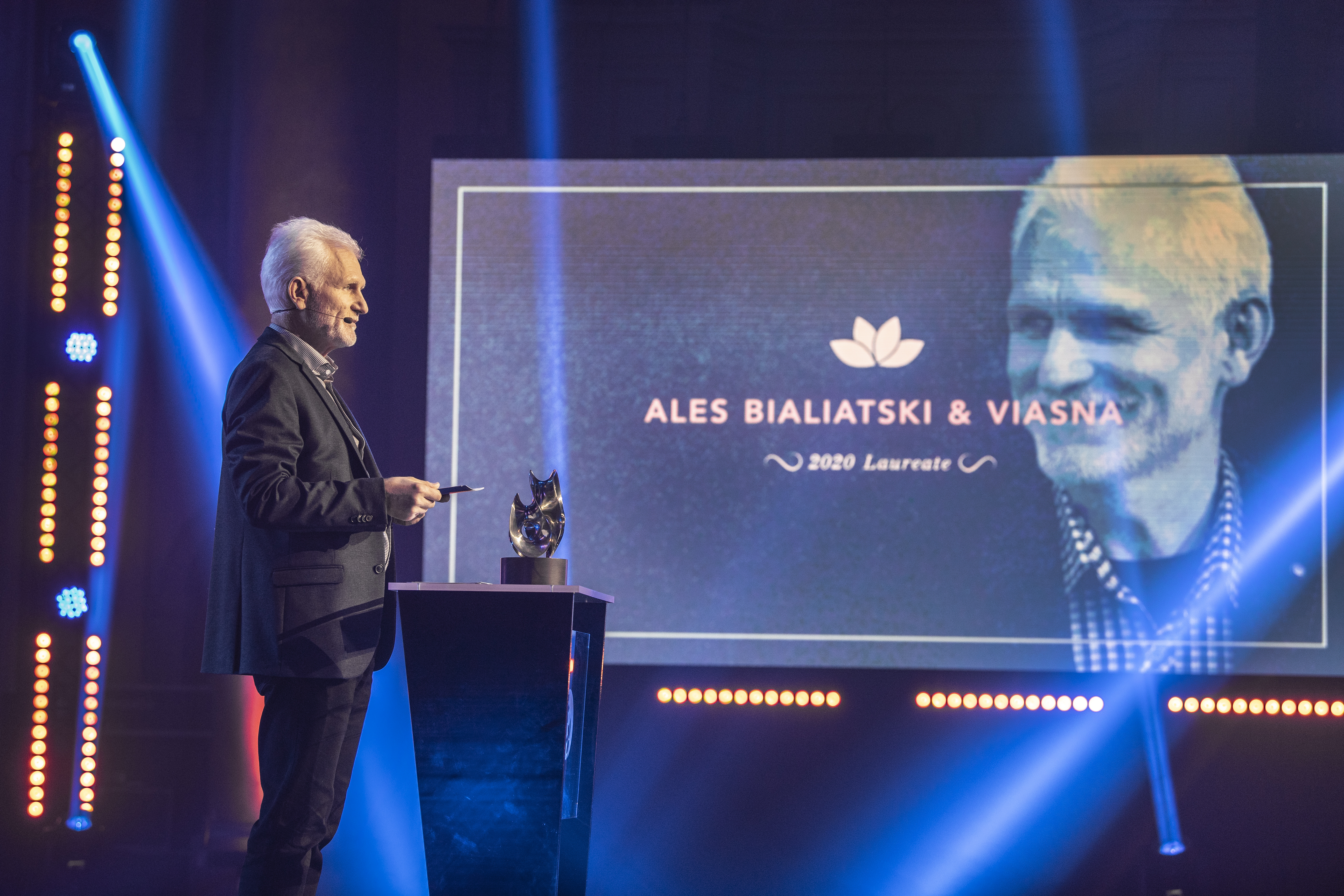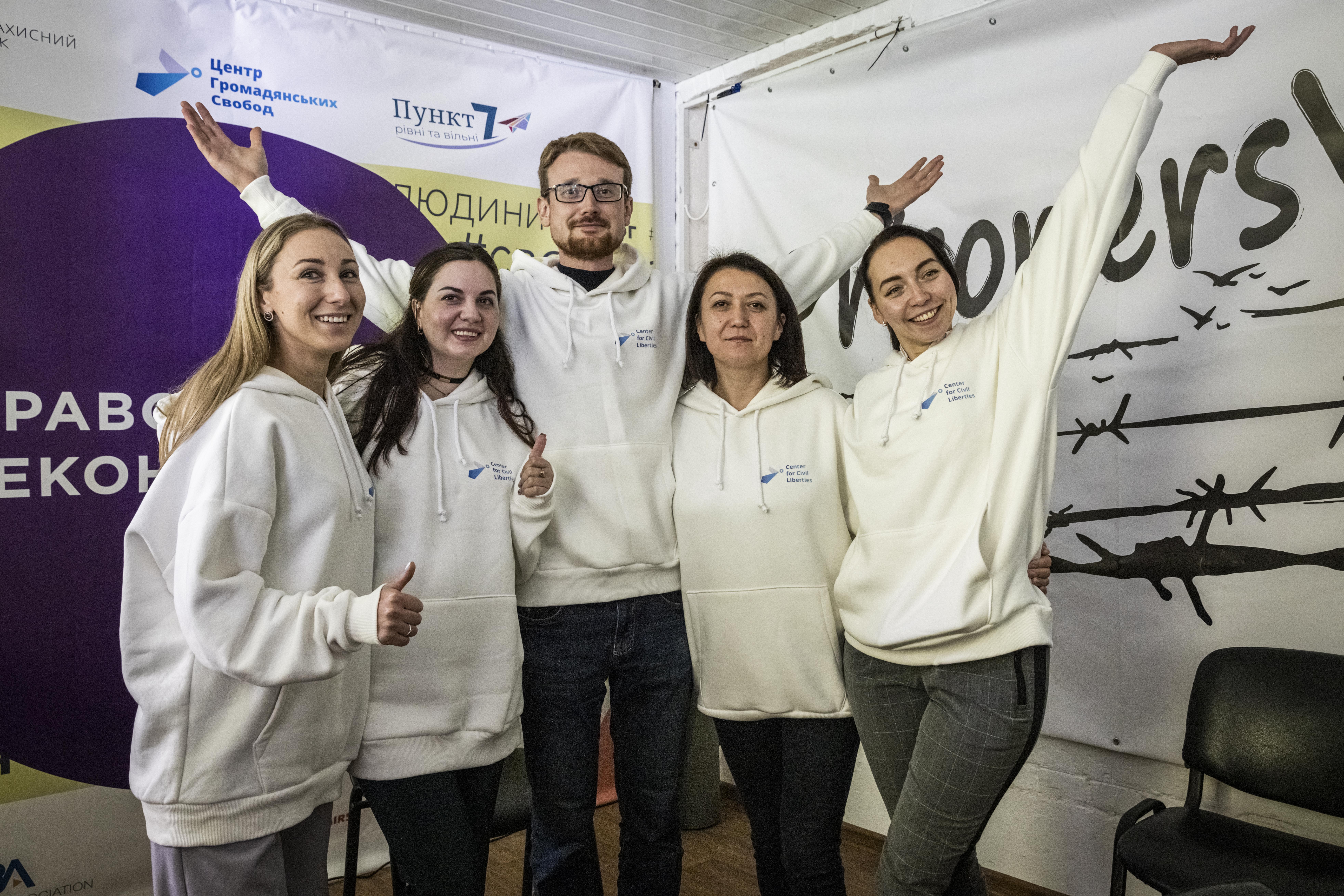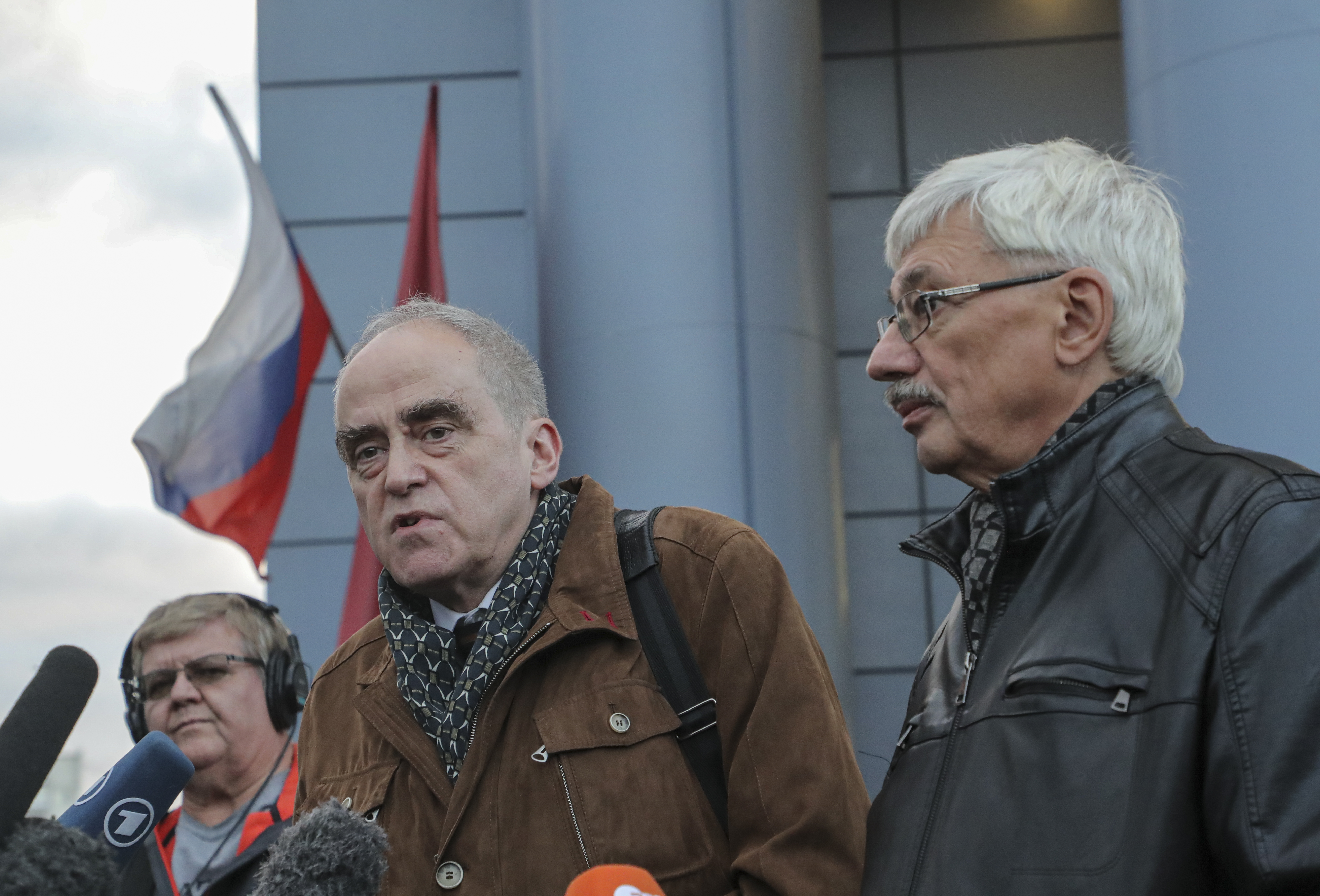THE CONVERSATION
Nobel peace prize goes to Belarusian, Russian and Ukrainian human rights activists

Imprisoned Belarus activist Ales Bialiatski, Russian human rights organisation Memorial and the Center for Civil Liberties in Ukraine have shared the award.
On the 70th birthday of Russian president Vladimir Putin, the Nobel prize committee recognised the work of three winners who are all battling against Putin or pro-Putin regimes.
The peace prize went to imprisoned Belarus activist Ales Bialiatski, Russian human rights organisation Memorial and the Center for Civil Liberties in Ukraine. These winners have been recognised by the committee as exemplars of “human rights, democracy and peaceful co-existence”.
It is notable that the committee awarded prizes to an activist jailed by Putin’s key ally, a Russian human rights group that Putin has tried to close down and a Ukrainian human rights group that is documenting Russian war crimes.

Belarusian democracy activist of the human rights organization ‘Viasna’, Ales Bialiatski speaks after receiving the 2020 Right Livelihood Award in Stockholm, Sweden, 03 December 2020. EPA-EFE / ANDERS WIKLUND

Staff members of the Centre for Civil Liberty pose for a photo and celebrate in their office on October 7, 2022 in Kyiv, Ukraine. Image: Ed Ram / Getty Images

Oleg Orlov (R), a member of the Board of the International Historical Educational Charitable and Human Rights Society ‘Memorial’ (International Memorial) and Yan Rachinsky (C), chairman of the Board at the Memorial Russian human rights organisation, talk to journalists as they leave the court building after a hearing in Moscow, 07 October 2022. EPA-EFE / MAXIM SHIPENKOV
Ales Bialiatski is a Belorusian, currently imprisoned for his activism. He was one of the original democracy activists in Belarus in the 1980s, and has never lost his commitment nor activism in promoting democracy and peaceful development in Belarus.
As Belarus slid towards dictatorship, Bialiatski’s activism became less acceptable to the regime of President Alexander Lukashenko. Bialiatski is only the fourth person to be awarded a peace prize while in detention and the Nobel committee has asked that he might be freed from prison in order to collect his prize in person in Oslo.
The Ukrainian Center for Civil Liberties started to identify and document potential evidence of Russian war crimes from February 2022, when the invasion began. These efforts will become important should the International Criminal Court be able to charge Russia with war crimes. The Center has been recognised by the Nobel committee for working to “strengthen Ukrainian civil society and pressure the authorities to make Ukraine a fully fledged democracy”.
BREAKING NEWS:
The Norwegian Nobel Committee has decided to award the 2022 #NobelPeacePrize to human rights advocate Ales Bialiatski from Belarus, the Russian human rights organisation Memorial and the Ukrainian human rights organisation Center for Civil Liberties. #NobelPrize pic.twitter.com/9YBdkJpDLU— The Nobel Prize (@NobelPrize) October 7, 2022
The third winner is the Russian human rights organisation Memorial, which was outlawed in Russia in 2021. Memorial was co-founded by Andrei Sakharov, the physicist and another Nobel peace prize winner, during Gorbachev era, with the aim of bringing to light the scale of the terror and persecution during Stalin’s period in power.
The organisation publishes previously hidden historical documents and personal stories of those who were sent to Joseph Stalin’s gulags, Russian prison camps. These stories became uncomfortable for Putin’s regime when they began to have parallels with its creeping repression.
In recent years the Kremlin has sought to persecute and imprison Memorial activists and to close down their offices in Moscow. By an unhappy irony, the award of this year’s Nobel prize coincides with a Moscow court appearance for Memorial activists seeking to overturn the seizure of their office.
The peace prize committee said it had taken into consideration the risk posed to the recipients in being awarded these prizes. For Bialiatski, in particular, as he is currently in prison, the committee said they hoped the prize would boost his morale and have no negative consequences for him.
Committee spokesperson Berit Reiss-Andersen said: “Through their consistent efforts in favour of human values, anti-militarism and principles of law, this year’s laureates have revitalised and honoured Alfred Nobel’s vision of peace and fraternity between nations — a vision most needed in the world today.”
Nobel’s history
The Nobel peace prize seeks to recognise the person, or people, who have “done the most or best to advance fellowship among nations, the abolition or reduction of standing armies, and for the holding and promotion of peace congresses”. There have been 137 peace prize laureates since it was first awarded in 1901.
Peace prize nominations come from heads of state, politicians, previous winners and academics. This year there were 343 nominations, the second-highest in the prize’s history.
The history of the peace prize has occasionally been controversial. In particular, the awards to President Barack Obama in 2009, amidst extrajudicial killings by US drones, and to US secretary of state Henry Kissinger and Vietnamese politician Le Duc Tho in 1973 for negotiating peace in Cambodia when the conflict was still ongoing, have drawn criticism. The 1991 winner, Aung San Suu Kyi, later had to defend her country against accusations of genocide, moving her far from the peace prize’s ethos and purpose.
This year, the committee has steered clear of the bookmakers’ favourites, the Ukrainian President Volodymyr Zelensky and jailed Russian political activist Alexei Navalny. They have opted instead for long-standing human rights activists who have stood up to the powerful to carry out difficult work.
The 2022 Nobel peace prize offers the faintest glimmer of hope in reaffirming the norms around peaceful coexistence and universalised human rights. DM/ML
This story was first published in The Conversation.
Robert M. Dover is a Professor of Intelligence and National Security at the University of Hull
In case you missed it, also read Annie Ernaux, French feminist who uses language as ‘a knife’, wins Nobel Prize for Literature


















 Become an Insider
Become an Insider
Comments - Please login in order to comment.